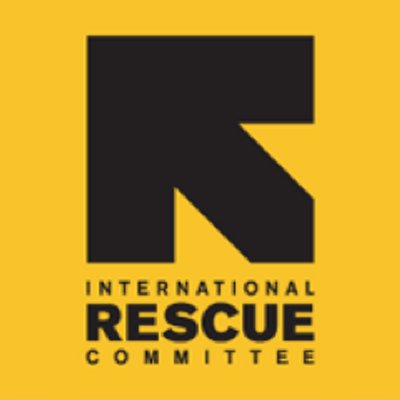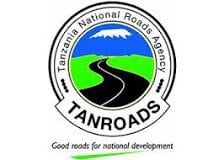Requisition ID: req39953
Job Title: Education Coordinator
Sector: Education
Employment Category: Fixed Term
Employment Type: Full-Time
Open to Expatriates: Yes
Location: Kasulu, Tanzania
Job Description
For over half a century, Tanzania has been a country of asylum, hosting one of the largest refugee populations in Africa. Currently, the country hosts approximately 287,903 Burundian and Congolese refugees, many of whom arrived in 2015 as the crisis in Burundi increased. To date, refugees continue to co-exist with the host communities in Kigoma region expressing multiple reasons and needs. Within this context, IRC provides protection and basic assistance in the areas Safety (comprises of Protection and Rule of Law, Women Protection and Empowerment, and Child Protection), Health (mental health and psychosocial support services and reproductive health) and Education.
Job Overview
The Education Coordinator will be responsible for providing technical and operational support and ensuring timely and quality implementation of program activities and strategies in compliance with donor requirements. They will ensure that the objectives of the programs are met in a timely manner and are being monitored and evaluated effectively; ensure that education staff receive appropriate mentorship and professional development; and that a positive team spirit is fostered, encouraging innovative and quality programming. Additionally, the Education Coordinator will collaborate with other sectors to ensure that protection and wellbeing of children is consistently mainstreamed across IRC sectors. They will also work in coordination with key Education stakeholders and partners, representing the IRC Education program in Tanzania. The IRC currently has the UNHCR Operational Mandate for Education in the two refugee camps in Kasulu and Kibondo with responsibility for providing education services to thousands of refugee children. In addition, the IRC is also implementing a regional education project in the two camps that is also being implemented in Uganda and Ethiopia and another project in partnership with Cambridge Education that is being implemented in seven regions of Tanzania.
Major responsibilities
Sector Strategy, Design, and Fundraising
• Provide leadership to the education team in developing and implementing evidence-based, cost-effective funding applications and identifying opportunities for sustainable program growth through the pursuit of new programming initiatives and emphasizing the importance of securing multi-year funding to support them.
• Ensure, with education staff and Technical Advisor, that project design of projects reflects IRC program quality standards and industry standard methodologies and includes theory of change.
• Provide guidance, strategies, and tools to ensure that programming choices are based on needs assessment findings (primary & secondary data) and analysis, input from communities, a thorough understanding of context, technical standard methodologies, and operational viability.
• Formulate integrated programming initiatives so that the education sector complements the other IRC sectors and promotes mainstreaming of protection principles and gender-responsive approaches.
Project Management
• Provide overall leadership and management of the education portfolio, ensuring strategically coherent program direction, well-managed growth, and compliance with IRC and donor regulations.
• Continually seek out ways to build the capacities of team members, individually and collectively.
• Ensure that detailed, realistic, and feasible project implementation plans are developed, and modified as needed.
• Support education staff to collect, document and disseminate lessons learned and standard methodologies, incorporating these into new project designs.
• Work closely with M&E Coordinator to regularly review progress against indicators.
• Contribute to accountability mechanisms for beneficiary feedback and review sector M&E and accountability data with sector staff to identify areas for operational improvement.
• In collaboration with the M&E coordinator and sector staff, develop effective and appropriate M&E plans, including methodologies and tools to strengthen the quality of data collection, analysis, and reporting.
• Coordinate with other Technical Coordinators on appropriate management, compliance, and performance standards, as well as effective systems for budget management, knowledge management and risk management.
• Regularly travel to the field to visit projects.
Financial Management
• Work with finance, operations, and grants to ensure compliance with donor requirements and develop periodic re-forecasting of the annual operating budget.
• In collaboration with the field management, ensure that education staff are well trained to properly manage project budgets.
• Meet with sector, grants, and finance staff regularly to review budget comparison reports.
• Mitigate risk by collaborating with the Finance Department to ensure that sector staff fully understand financial and administrative processes involved in project budget cycles.
• Ensure that risks limiting achievement of objectives are reported and rapidly addressed.
Staff Management and Development
• Create a supervisory environment focused on the achievement of team and individual results that emphasize the importance of learning, productivity, accountability, and openness. Communicate regularly with staff and promote positive conflict resolution among team members.
• Provide guidance and supervision to all sector managers; guide recruitments, discuss job expectations, set objectives, and provide appropriate and timely feedback on performance of direct reports, including timely implementation of performance management as per IRC’s performance management system.
• Build capacities of sector staff in key project management principles, tools and approaches and ensure that these new skills are applied on the job.
• Provide leadership for the successful implementation of and adherence to the IRC HR Operating Policies and Procedures.
• Lead with commitment, integrity, and accountability to the “IRC Way Standards”.
• Promote constructive, collegial collaboration between sector staff, other IRC program staff and operational support staff.
Representation and Communication
• Enhance IRC Tanzania’s education Sector profile among relevant stakeholders – donors, national and local government partners, international and national NGOs, etc.
• Represent the IRC education Sector at NGO, interagency and governmental meetings.
• As the focal point for program-related communication between IRC country programs in the region and the global level, the role includes overseeing education sector inputs to advocacy efforts both locally and globally.
Job Requirements
• Education: Advanced degree in education, training, or relevant field
• Must have at least six years of progressive experience in international management, including technical staff supervision.
• Proven ability to develop winning proposals to public and private sector donors.
• Previous experience in managing programs financed by US government agencies, DFID, EU, UN, foundations, and private donors is a must, with previous experience in competitive RFA/P environments a plus.
• Proven ability to manage projects to completion on time, within budget, and with the anticipated results.
• Demonstrated successful leadership experience with a multi-disciplinary team in a cross-cultural setting, including active mentoring and coaching.
• Extensive experience with monitoring and evaluation tools and systems for complex programs.
• Ability to respond to multiple priorities in a timely manner, producing high-quality outcomes.
• Ability to work and live in a sometimes-insecure environment while maintaining a positive attitude.
• Excellent in English, with Kiswahili a strong advantage
Working Environment: Security level yellow – The situation in most of the country is calm. Some parts of Kigoma region experience insecurity-highway banditry.
Professional Standards: The IRC and IRC workers must adhere to the values and principles outlined in the IRC Way – Standards for Professional Conduct. These are Integrity, Service, Equality and Accountability. In accordance with these values, the IRC operates and enforces policies on Beneficiary Protection from Exploitation and Abuse, Child Safeguarding, Anti Workplace Harassment, Fiscal Integrity, and Anti-Retaliation.
Commitment to Diversity and Inclusivity: IRC is committed to building a diverse organization and a climate of inclusivity. We strongly encourage applications from candidates who can demonstrate that they can contribute to this goal.
IRC is an Equal Opportunity Employer: IRC considers all applicants on the basis of merit without regard to race, sex, color, national origin, religion, sexual orientation, age, marital status, veteran status or disability. We will ensure that individuals with disabilities are provided reasonable accommodation to participate in the job application or interview process, to perform crucial job functions, and to receive other benefits and privileges of employment.


